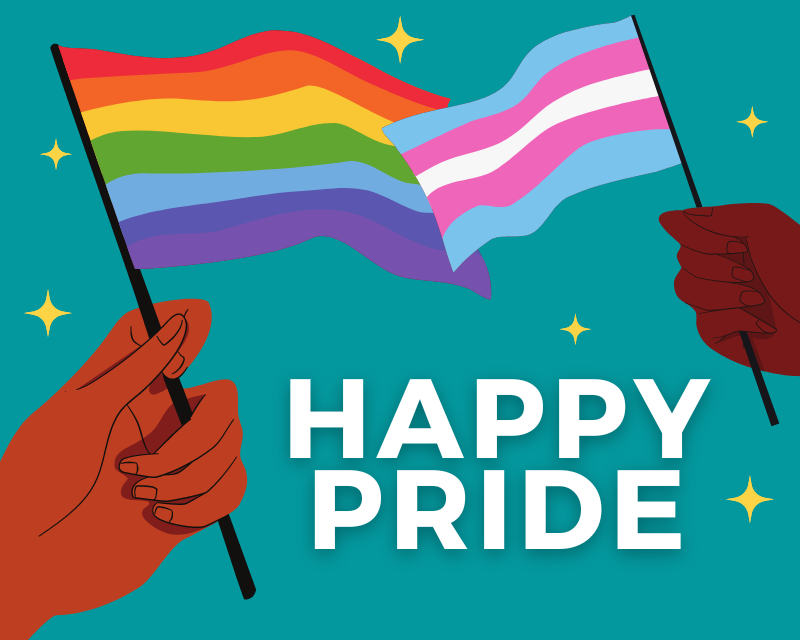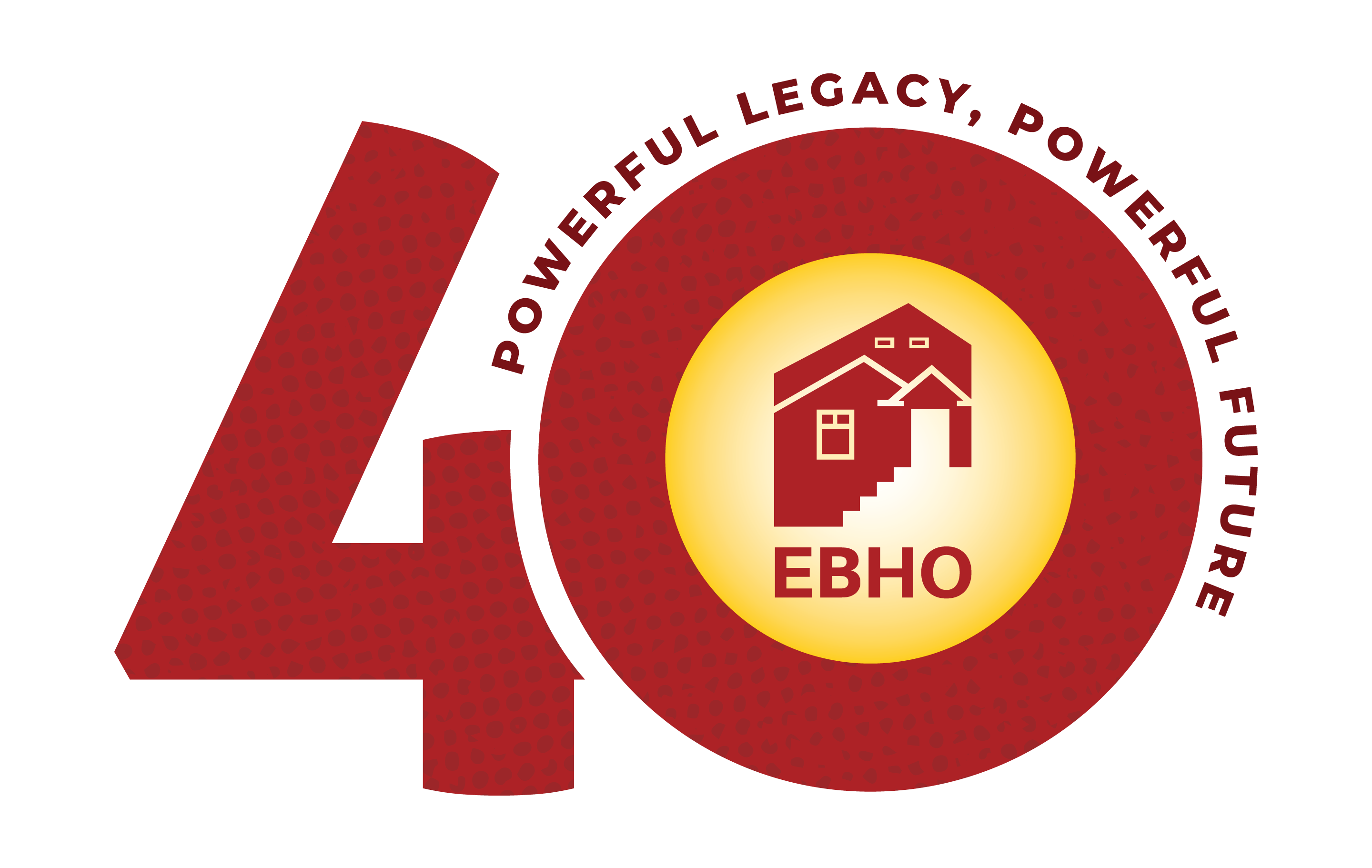
Happy Pride Month from the team here at East Bay Housing Organizations!
This Pride Month, We’re giving thanks to the Black and Brown trans women who won us our rights. The first Pride celebration was a riot. In 1969, when police burst into the Stonewall Inn in New York City to conduct yet another raid on Black and Brown trans people simply for existing in public, the community fought back. Two trans women of color credited with participating in the riot — Marsha B. Johnson and Sylvia Rivera — went on to be leaders in the community, founding a shelter for homeless gay and trans youth.
The LGBTQ+ community is deeply impacted by the homelessness crisis. LGBTQ+ people are 120% more likely to experience some form of homelessness during their life than the general population. And heartbreakingly, the crisis is most severe among youth.
One in four transgender youth will experience homelessness, and the rates of homelessness are even higher in the BIPOC community. The primary reason for LGBTQ+ youth homelessness is family rejection. Therefore, the right wing’s escalating campaign to eradicate trans people from public life threatens not only trans’ people’s civil rights, but trans children’s homes.
Amidst this political warfare, we at East Bay Housing Organizations are unequivocal in our support of the LGBTQ+ community and our opposition to transphobic legislation.
Further Reading
Browse the links below to learn more about LGBTQ+ youth homelessness, as well as the anti-trans legislative agenda taking hold across the nation.
Some Trans History
In 1970, Sylvia Rivera and Marsha B. Johnson founded Street Transgender Action Revolutionaries (STAR). STAR was the first shelter for queer and trans youth, as well as a political organization.
The language and labels trans people used at the time were different from the ones we use today. In modern day, the term transvestite is widely considered to be derogatory, and STAR was renamed as Street Transgender Action Revolutionaries in 2001.
- Street Transvestite Action Revolutionaries by Leslie Feinberg, Workers World, 9/24/06
“STAR was for the street gay people, the street homeless people, and anybody that needed help at that time,” Rivera said. Shelter was a big problem for trans street youth. “Marsha and I had always sneaked people into our hotel rooms. And you can sneak 50 people into two hotel rooms.”
- Sylvia Rivera Part III: Street Transvestite Action Revolutionaries, A Gender Variance Who’s Who, 9/10/17
“We had a S.T.A.R. House—a place for all of us to sleep. It was only four rooms, and the landlord had turned the electricity off. So we lived there by candlelight, a floating bunch of 15 to 25 queens, cramped in those rooms with all our wardrobe. But it worked. We’d cook up these big spaghetti dinners and sometimes we’d have sausage for breakfast, if we were feeling rich.”

LGBT Youth Homelessness
- Homeless Trans Youth Are More Than Just Statistics — We’re Fully Realized People (Op-Ed) by Davina Hayes and Amy Leipziger, Teen Vogue, 6/21/23
“As you go about your Pride month, I want you to remember my story and the stories of so many others, who are not just numbers and statistics but faces and bodies looking for ways to get by, on the subway, in stores, or on the streets — to find the self-care that helps us survive and manage the stress that stems from our daily lives.”
- ‘Rejected solely because of your identity’: Homeless LGBTQ youths face unique challenges, USA Today, 6/2/2023
“Without family support or any financial cushion, the lives of young queer people can quickly become full of danger and risk from violence on the streets and in shelter systems, providers say.”
- Video: The Harsh Reality of LGBT Homeless Youth, Chosen Family: Stories of Queer Resilience by Tyler Oakley, 6/5/2018
Anti-Trans Legislation
- Trans Legislation Tracker — This volunteer research agency is tracking the 558 anti-trans bills introduced at the state and federal levels this year. This is the fourth consecutive year we’ve seen a record number of anti-trans bills introduced in the U.S.
- Why Anti-Trans Laws Are Anti-Science by the Editorial Board, Scientific American, 6/30/21
“If lawmakers are interested in improving the health of young people, including transgender youth, as they often claim in these debates, a better use of their time might be to focus on improving access to high-quality medical health care for all rather than restricting it for some.”
- How a Campaign Against Transgender Rights Mobilized Conservatives by Adam Nagourney and Jeremy W. Peters, The New York Times, 4/16/23
“The focus on perceived threats to impressionable children has a long history in American sexual politics. It has its roots in the “Save Our Children” campaign championed in 1977 by Anita Bryant, the singer known for her orange juice commercials, to repeal a local ordinance in Miami-Dade County that prohibited discrimination based on sexual orientation, a historic setback for the modern gay rights movements.”



